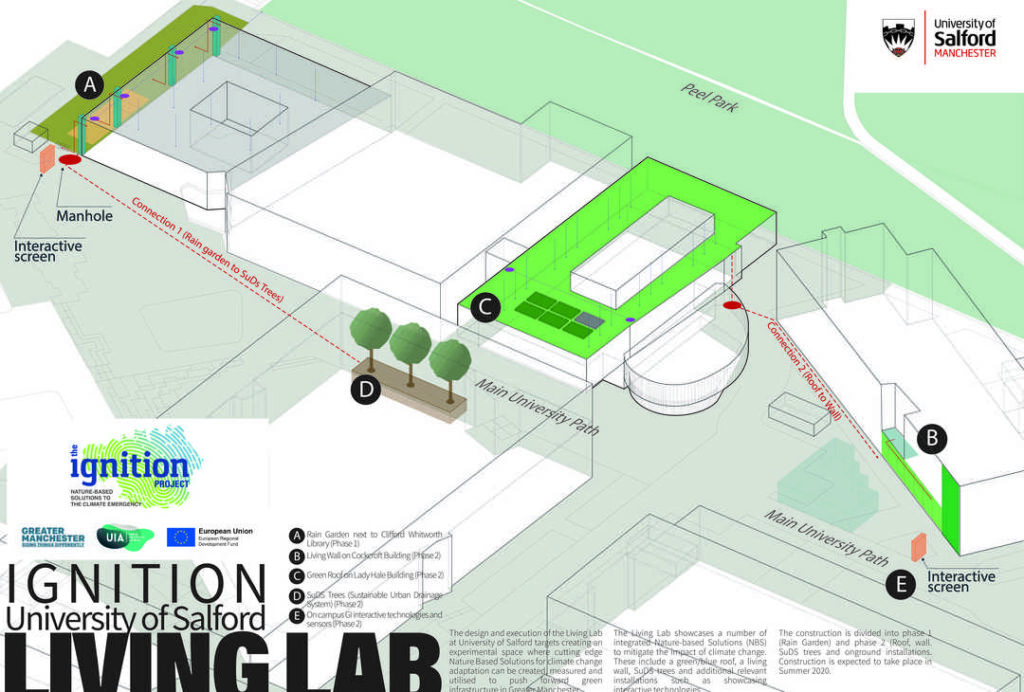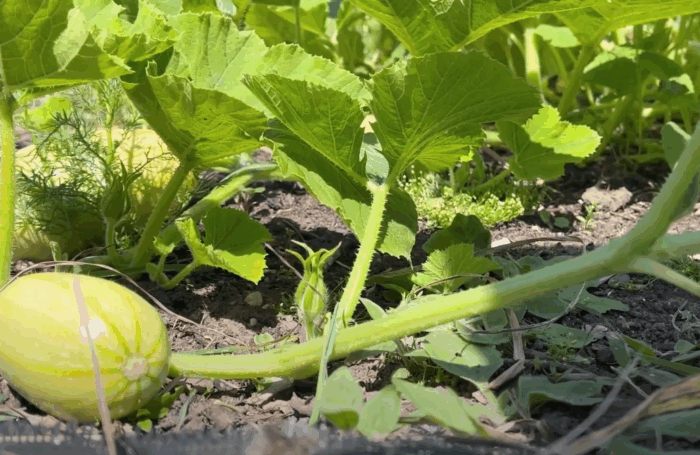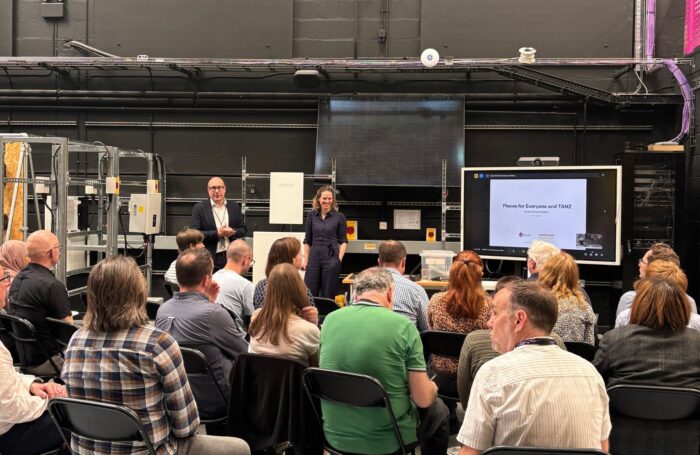Last week, the University of Salford revealed the completed Phase 1 of its innovative Living Lab. The construction is part of the IGNITION project, which looks to relieve the pressures of climate change in urban areas through the financing of nature-based solutions (NBS).
The IGNITION project is a UIA-funded initiative to increase financial investment in NBS such as green walls, green roofs and sustainable drainage systems across Greater Manchester. These kinds of green infrastructure are a vital and proven way to reduce the effects of climate change while saving businesses money and energy in the long run.
The launch event
On the day, an online gathering and 14 in-person attendees, including the university’s Dean of Architecture and the Built Environment Prof Hisham Elkadi, Vice Chancellor Prof Helen Marshall, and Salford Mayor Paul Dennett, officially saw the opening of this key project milestone that will help the campus adapt to the effects of climate change.
The IGNITION Living Lab showcases the multiple benefits of NBS and aims to inspire organisations and local authorities to invest in these preventative measures.
This phase of the project included a rain garden with an intensive monitoring system and a total attenuation volume of 50,000 litres of water. The following phase, currently under construction, comprises a green roof, living wall and sustainable drainage trees, all accessible at the university campus via nearby Peel Park. These NBS were installed by SEL Environmental, a leading local NW sustainable drainage contractor based in nearby Blackburn. They will now continue onto Phase 2 of the project.
Phase 1: Rain Garden
This innovative rain garden introduces a sustainable drainage system (SuDS) that works as a sequence of passive water management practices, control structures and strategies designed to efficiently and sustainably drain surface water from the adjacent building roof with special regard for engaging biodiversity in the solutions.
The water from the roof of Clifford Whitworth library is channeled through solutions in the building wall and ground water treatment solutions in the ground. This aims to minimise or even eliminate the water ending up in the university’s surface water drainage network which flows into the nearby River Irwell.
More to come!
You can still watch the launch of the Living Lab’s rain garden and read this University of Salford newsletter all about the project.
Phase Two of the project, including a large-scale green wall is due to be completed early in 2021, with a formal launch in April that year.
Keep an eye on the GMGreenCity Twitter account for more details. Or head over to the IGNITION project website to find out more.




